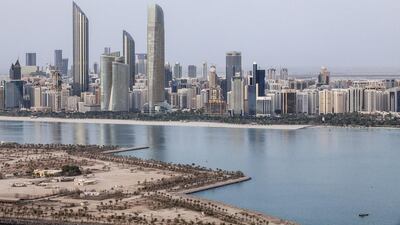As the GCC economies adjust to a lower oil price, a lower growth environment, and corporate earnings are tempered accordingly, investors should look to a defensive, yield-focused strategy through a multi-asset class portfolio.
The IMF recently forecast GCC economic growth would fall to 1.8 per cent this year, from 3.3 per cent last year, with the drop in oil prices putting pressure on government budgets and causing investment projects to be cut down.
Although governments have adopted sweeping macro reforms and fiscal measures to steer their economies to better withstand a prolonged period of lower oil prices, investor sentiment has suffered.
Regional equities and bonds experienced heightened volatility for much of last year, before markets made a cautious and fragile recovery over the past three months.
While this period of economic adjustment and transition is under way, investors should look to target capital preservation and income generation across a multi-asset class portfolio that includes equities, bonds and property. It should still be possible to achieve an attractive cash yield return of about 6 per cent without taking excessive risks.
Equity markets in the UAE, Saudi Arabia and Qatar currently offer average dividend yields of 4.5 per cent, 3.6 per cent and 4 per cent, respectively. But because declines in regional equity markets have been somewhat indiscriminate, some companies, particularly in the utilities, telecoms and banking sectors, are now offering yields in excess of 6 per cent. And they still maintain relatively healthy balance sheets, cash reserves and a decent ability to generate cash.
Companies with strong sovereign ownership are particularly interesting because many trade at yields that do not reflect the relative safety that such backing brings.
The banking sector is a great example. While not traditionally viewed as defensive, the shares of select UAE and Qatari banks offer highly attractive dividend yields of more than 7 per cent.
However, it is important to look beyond the current dividend yield and scrutinise the ability of companies to sustain their dividend payout ratios. A share yielding as high as 10 per cent can in some instances be an indication that the market feels that current levels of cash generation are unsustainable, and shares have been sold down with the expectation that a dividend cut will soon follow.
The high-yield story continues into regional bond markets. Low ratings assigned by credit agencies to certain corporate issuers have arguably overestimated their credit risk by failing to take into consideration a variety of qualitative factors, such as implicit government backing.
An example is the quasi-sovereign bonds category. Ratings agencies are underestimating the implicit and explicit support given by GCC governments in certain companies. Some corporate bonds are, therefore, offering yields to maturity of 4.5 to 5.5 per cent, a healthy spread above regional sovereign bonds, which range from 2 per cent to 3 per cent for similar tenors.
In the UAE property market, residential property is probably the most attractive option at the moment, as the current low-growth climate is leading to lower commercial occupancy.
In the UAE residential sector, investors can find well-maintained properties in attractive locations that deliver 6 to 7 per cent annual yields. Abu Dhabi apartment yields recently averaged 6.7 per cent, and Dubai 5.5 per cent, although properties with yields as high as 8 per cent can be found in Abu Dhabi for smaller, one-bedroom apartments.
Economic growth is expected to be modest by historical standards well into next year. But through smart investment selection and asset allocation between GCC equities, bonds and property, investors can beat the market, preserve their capital and generate a healthy income.
Mohammed Salih Al Hashemi is the executive director of Invest AD Asset Management.
business@thenational.ae
Follow The National's Business section on Twitter

